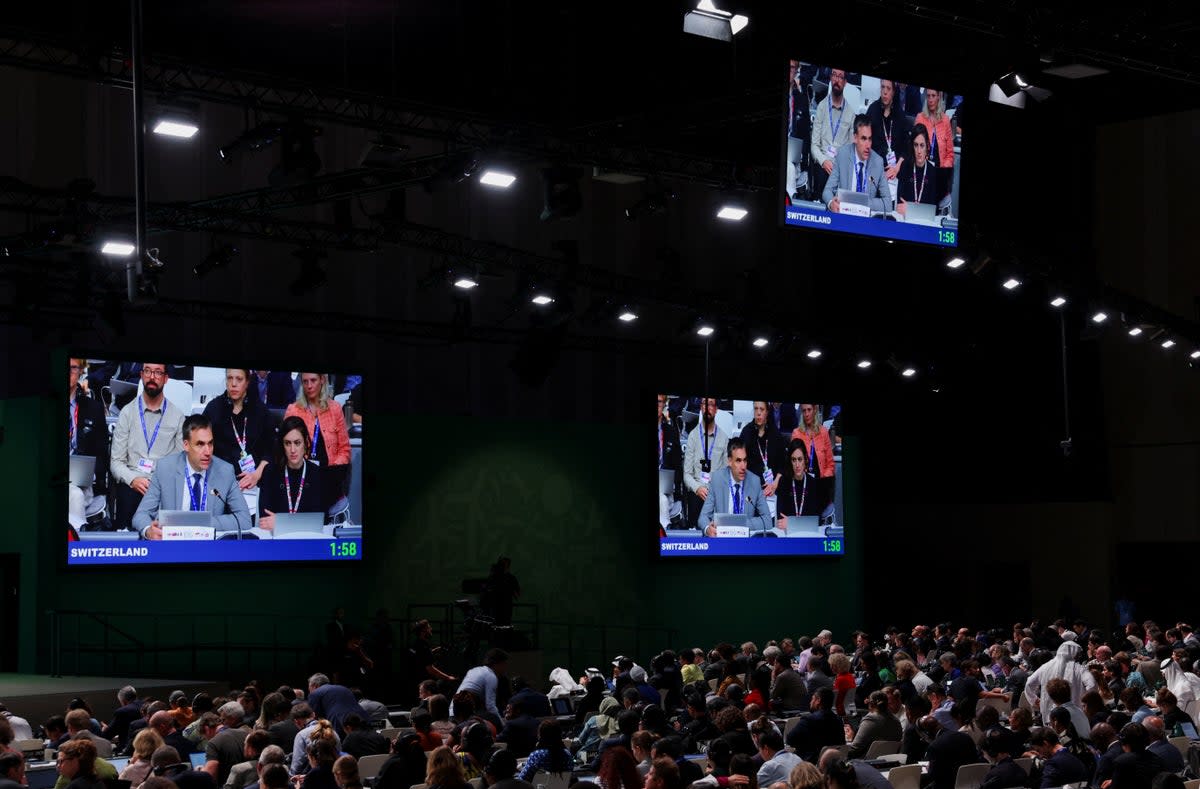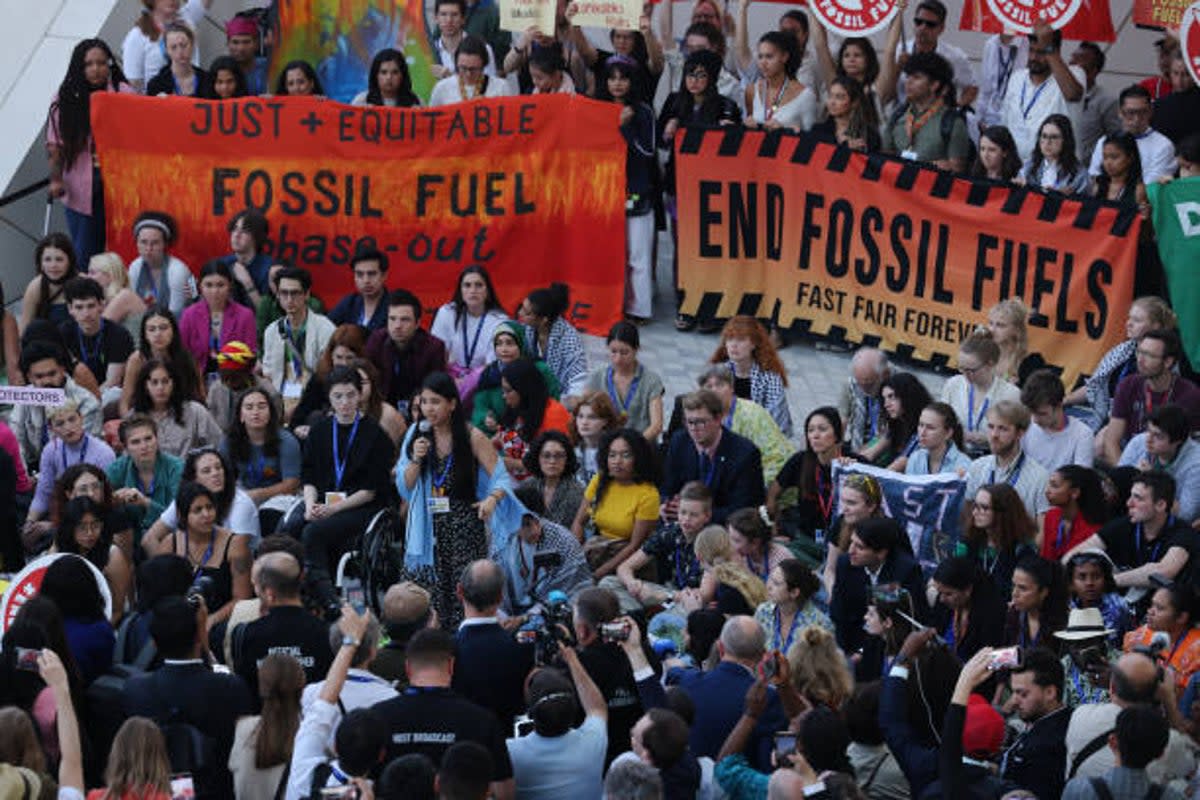Cop28 concludes with historic deal marking ‘beginning of the end’ for fossil fuel era
The Cop28 global climate summit has reached a historic deal on fossil fuels, hailed by the United Nations as “the beginning of the end for the fossil fuel era”.
The “Global Stocktake Agreement” (GST) was adopted within minutes of the final plenary opening on Wednesday morning in Dubai. It followed more than 24 hours of fraught negotiations between countries, and few updates.
Delegates from around the world rose to their feet, clapping and hugging each other, after the UAE’s Cop28 president Sultan Ahmed Al Jaber banged the gavel.
Calling the agreement, the “UAE Consensus”, Mr Al Jaber said that it was a plan “led by the science” with commitments to meet the goals of the 2015 Paris Agreement.
“We have language on fossil fuel in our final agreement for the first time ever,” Mr Al Jaber, who is chief executive of the UAE’s state oil company, added.

UN climate secretary Simon Stiell followed, and said that Cop28 had needed to send a signal on humanity’s core climate problem - “fossil fuels and their planet-burning pollution”.
“Whilst we didn’t turn the page on the fossil fuel era in Dubai, this outcome is the beginning of the end,” he said. The price of crude oil took a dip soon after the announcement was made.
UN Secretary General Antonio Guterres had called countries to bring their highest ambitions at the start of the summit, and had a stark message on Wednesday for those blocked inclusion of a call to “phase out” fossil fuels in the agreement. Saudi Arabia, Iraq, Russia, and members of the Opec+ group of oil-rich nations were the ones named - publicly at least - who opposed this language.
“Whether you like it or not, fossil fuel phase out is inevitable. Let’s hope it doesn’t come too late,” Guterres said.
Despite the historic shift on fossil fuels, there were many in the plenary hall left with deep disappointment. More than 100 countries, including the coalition of small islands and others facing extreme impacts, had called for “phase-out” or “phase-down” of fossil fuels that are the root cause of the climate crisis.
Instead, it called for “transitioning away from fossil fuels in energy systems” and accelerating action in “this critical decade” to achieve net zero by 2050. The world currently is far off course from this target.
Following the GST announcement, a representative for Samoa on behalf of the Alliance of Small Island States (AOSIS), said they were “confused about what just happened” and that they were not in the room when the text was adopted.
“This process has failed us,” the Samoan delegate said, describing the document as a “litany of loopholes”. The remarks were met with cheering and a longer standing ovation than the original fossil-fuel announcement.
Sultan Al-Jaber, who did not rise to clap, said that the Aosis statement would be added to the record.
Delegates largely acknowledged that the Dubai agreement - which required consensus of all countries, from the greenest to the oil-rich powers - was a step forward but that much more needed to be done to support and protect the most vulnerable.
It had been an exhausting and emotional marathon slog to reach this point after the summit ran nearly 18 hours past its official end time.
On Monday, a previous draft of agreement had provoked furious and heart-wrenching responses after it had significantly weakened the language.

John Kerry, the US special climate envoy, said that transformation of the international finance system was needed, and that developing countries needed to be supported “every step of the way” to build out their clean energy systems.
UK climate minister Graham Stuart, back at Cop28 after a brief 7,000-mile round trip to London on Tuesday to back Prime Minister Rishi Sunak’s Rwanda deportation bill, called for keeping 1.5C as the “North Star”.
He heralded the Loss and Damage fund, set up on the first day of the conference, as “long overdue”. But he said there was disappointment that more had not been done on coal in the Dubai text, an issue that the UK has championed at Cop28.
“There are elements here we do not like,” he said.
Germany’s minister, speaking on behalf of the European Union, acknowledged the small islands, pointing to Samoa and the Marshall Islands, and said that the bloc had decided on a phase out of fossil fuels to meet the 1.5C goal.
“We feel you, we see you,” Germany’s representative said. “We know for your children that this [agreement] might not be enough.
“We are walking the path of climate justice together.”


